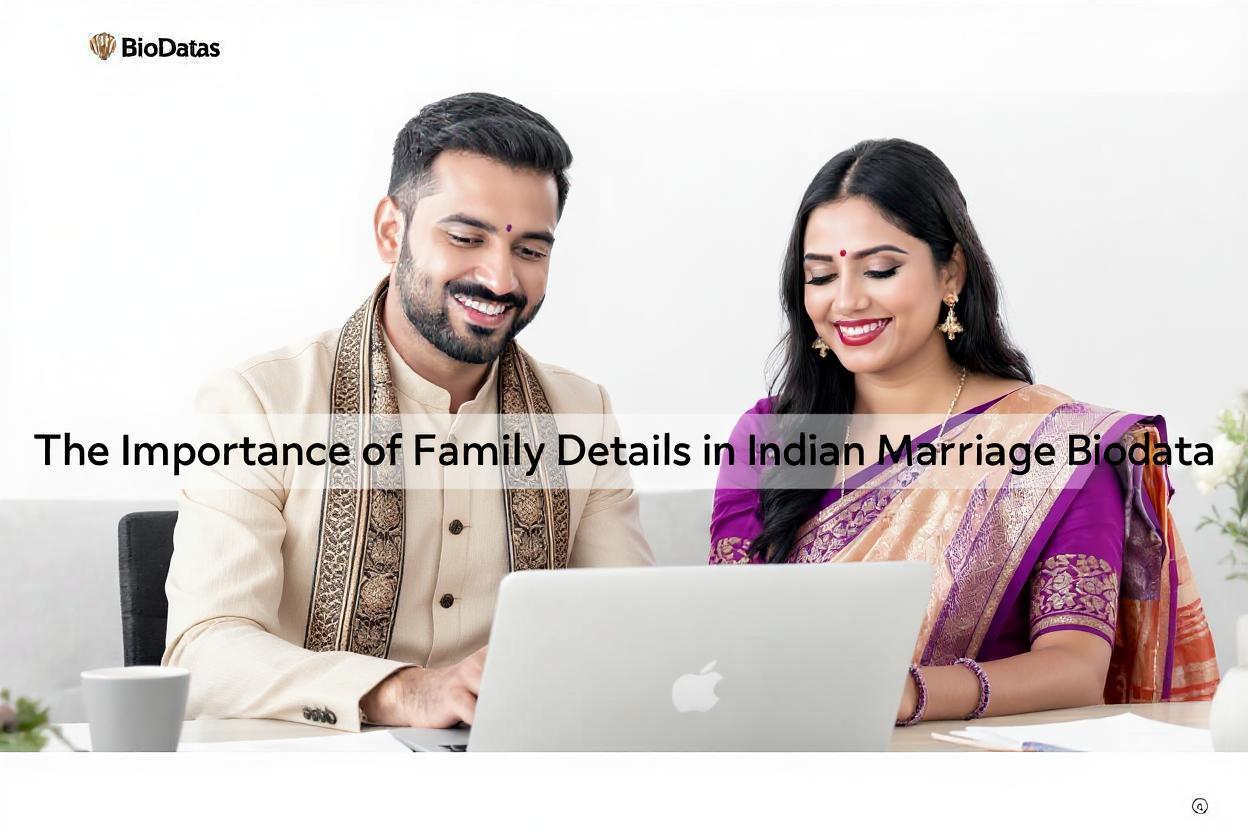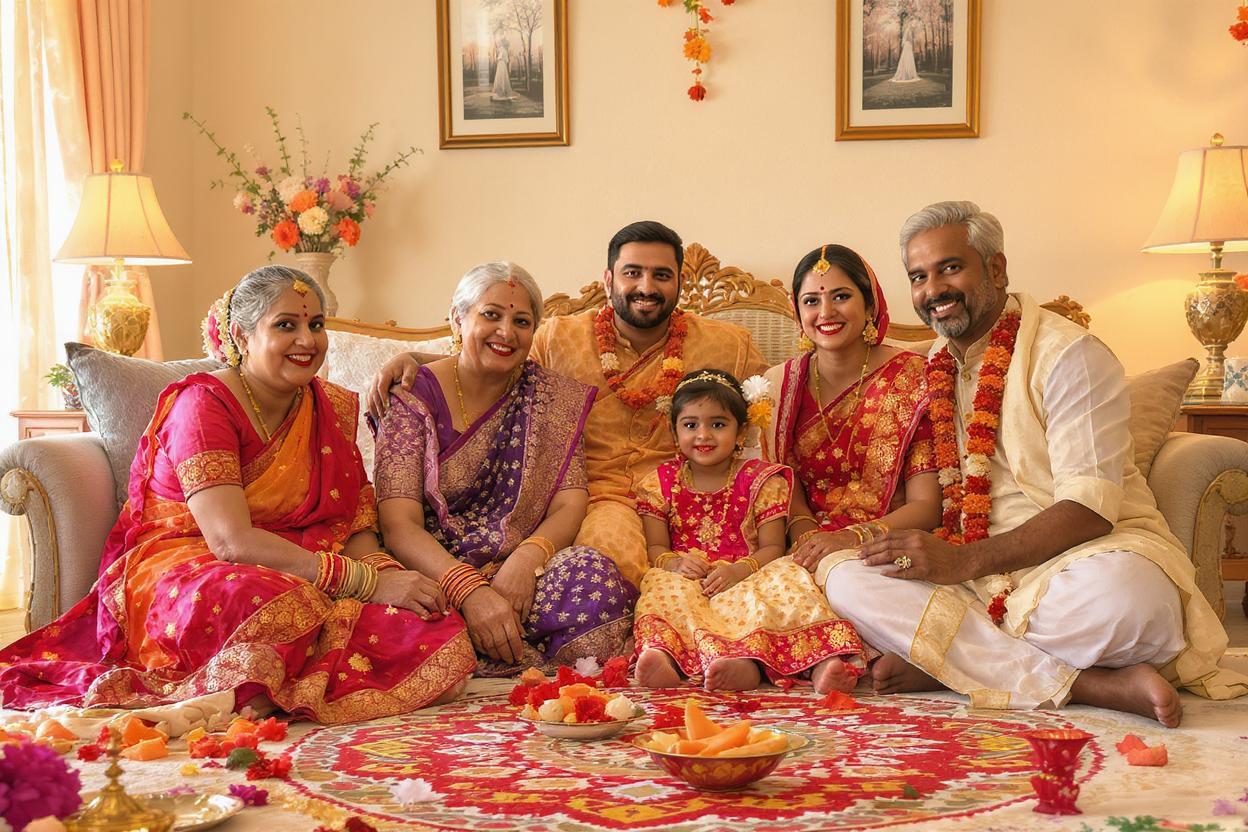How to Personalize Your Hindu Bio Data for a Memorable First Impression
Learn techniques to make your Hindu marriage biodata stand out while maintaining tradition.
Read MoreWhy family background matters in the matchmaking process and how to present it effectively
In the Indian matrimonial landscape, marriage biodata serves as the first point of introduction between potential life partners. While personal details like education, career, and hobbies are important, family information holds a special significance in the Indian context. This article explores why family details are crucial in Indian marriage biodata and how to present them effectively.

Family plays a central role in Indian matrimonial decisions
Indian marriages are traditionally seen as a union of two families rather than just two individuals. This cultural perspective makes family background an essential consideration in the matchmaking process. Here's why family details are so important:
Family values, traditions, and cultural practices play a significant role in long-term marital harmony. Detailed family information helps assess compatibility in these areas.
In Indian society, family reputation and social standing are often considered indicators of character and upbringing.
Strong family connections can provide support systems that contribute to marital stability.
According to a 2024 survey by an Indian matrimonial platform, 78% of parents consider family background as important as the individual's qualifications when evaluating potential matches for their children.
When creating your marriage biodata, these are the key family details you should consider including:

Key family information to include in your marriage biodata
While including family information is important, how you present it matters just as much. Here are some tips for effective presentation:
Present accurate information without exaggeration, but frame potentially sensitive details thoughtfully.
Highlight your family's strengths, values, and achievements without comparing or putting down others.
While family details are important, they shouldn't overshadow your personal information. Aim for a 70:30 ratio of personal to family details.
Organize information clearly under headings like "Family Background," "Parents' Details," and "Siblings' Information."
Use our Hindu Marriage Bio Data Maker or Muslim Marriage Bio Data Maker to create a perfectly balanced biodata with appropriate sections for family details.
Different communities in India may emphasize different aspects of family information. Here's a quick overview:
Often includes gotra, caste/sub-caste, and sometimes horoscope details. Family's religious practices (like puja routines) may be mentioned.
May include information about sect (Sunni/Shia), family's religious observance level, and sometimes details about hajj completion.
Often mentions denomination, church affiliation, and family's involvement in church activities.
May include information about family's connection to gurdwara and participation in seva (community service).
With our specialized biodata makers for different communities, you can create a professional biodata that presents your family details in the best possible way.
Create Your Biodata NowWhen including family details in your biodata, steer clear of these common pitfalls:
While financial stability is important, excessive focus on wealth can send the wrong message.
Avoid mentioning family disputes, health issues, or other negative aspects unless absolutely necessary.
Find the right balance - enough to give a clear picture but not so much that it becomes overwhelming.
Ensure all details align with what your family might share if contacted for verification.
While family background remains important, modern Indian matrimony is seeing some shifts:
However, family details remain a crucial component of Indian marriage biodata, serving as an important factor in the matchmaking process.
Your marriage biodata is your opportunity to present not just yourself, but your family background in a positive light. By including thoughtful, well-organized family details, you increase your chances of finding a compatible match that values what your family represents.
Ready to create a biodata that perfectly balances personal and family information? Explore our biodata maker tools designed for the Indian matrimonial context.
Learn techniques to make your Hindu marriage biodata stand out while maintaining tradition.
Read MoreUnderstand how astrological details influence matchmaking in Hindu matrimony.
Read MoreBalance contemporary presentation with traditional values in your biodata.
Read More